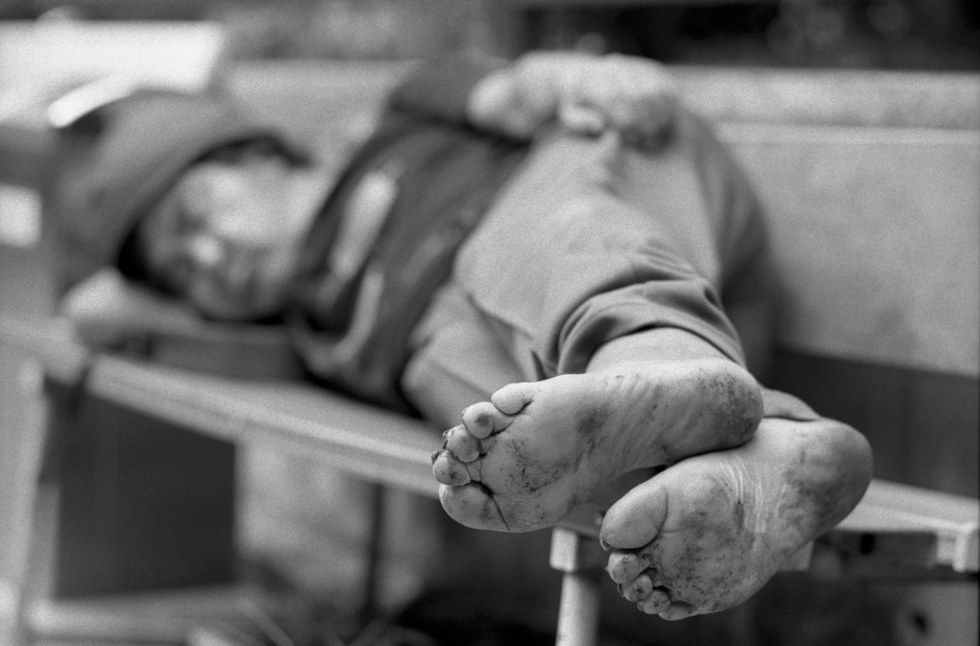Italy, 2011. A homeless man wanders through a Genoa market in search of a meal. With the little money he has, he purchases some bread, but takes more items than just those he paid for. This act was witnessed by another customer, and Roman Ostriakov, impoverished and hungry, was sentenced to six months in jail and slapped with a €100 fine. All of that, for stealing a few Euros' worth of food. Because he was starving. Yes, the law can come down hard sometime, even on those who could use a little grace. However, Ostriakov's case recently made it all the way to Italy's highest court of appeals. It was determined there that the human right to survival is more important than another individual's right to property. The court ruled that, because Ostriakov was acting out of necessity and took only a small amount of food required for nourishment, he was not guilty of criminal action.
What should we make of this then? As a society, as the people of a moral community, and as members of the human race, what should we think of this precedent? This question digs down to the core of our legally guided society. And unfortunately, there is no perfect answer. It feels incredibly unfeeling to disagree with the ruling of the court, after all, the man was starving. We are morally obliged to be charitable to those in need, and to help those who cannot help themselves. That's Biblical, and (religious or not) it is good advice. As emotional individuals, it feels wrong to deny a disadvantaged man a meal.
However, if we flip the coin, looking at the legal ramifications of such a precedent---"...It's OK to steal food if you really need it."---we are confronted with a disconcerting load of questions, like:
- Will there be court cases to determine guilt in any future incidents?
- If so, how will the idea of "need" be determined?
- If not, what standard will be used to determine "need" by parties involved (i.e, shopkeepers, law enforcement, etc.)?
- In any circumstance, isn't any set determinate standard for "need" (be it judicial or legal) a bit arbitrary? How would such a standard be created, and justly held?
The list of questions are endless. Further (and, this author believes, natural) progressions of this legal precedent are even more disconcerting. While the case at hand revolves around food, there are other things in this world required for survival. When freezing, the body requires shelter from the biting cold. When sick, the body requires medical attention for healing. We need these things for our survival. So what will happen when a destitute young woman goes to a pharmacy and steals medication for her ailing child? Will the precedent hold? Should it? Some would submit that a line needs to be drawn, and the law firmly, if not callously, upheld. And I would tend to agree. Grace is important; it is a staple idea of my personal faith, and one of the better parts of humanity as a whole. But grace, if improperly wielded, can have serious consequences.
For more on this story, check out this article by the BBC: http://www.bbc.com/news/world-europe-36190557























